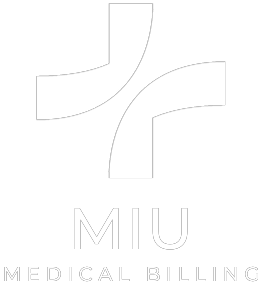Introduction to Practice Management in Texas
Mastering Practice Management in Texas: Orchestrating administrative, financial, and operational systems is crucial for Texas medical practices. Efficient appointment scheduling, seamless billing, and robust electronic health records (EHR) ensure compliance with unique Texas regulations. This empowers healthcare professionals to focus on top-notch patient care while navigating challenges like telehealth policies and prior authorization requirements. Texas-specific resources, like the Texas Medical Association Practice Operations Resource Center, provide valuable support. In Texas, effective practice management isn’t just about running a smooth office; it’s about thriving in a dynamic healthcare landscape.
In the broad expanse of rural Texas, where the pulse of community healthcare reverberates, physicians are confronted with various difficulties and opportunities unique to their environments. When it comes to navigating the complexities of patient care and administrative complexities, practice management becomes an indispensable compass that guides these heroes of the healthcare industry.
Understanding the Rural Landscape
The rural landscape of Texas, with its dispersed settlements, necessitates a practice management strategy precisely customized to the area. Doctors are more than just medical care providers; they are also the pillars of their communities. Practice management techniques must align with the Texan spirit, combining individualized care with operational agility.
Patient-Centric Technology
Today, embracing technology is not merely a choice; instead, it is an absolute requirement. Incorporating user-friendly electronic health records (EHR) and telehealth alternatives into practice management solutions specifically designed for rural physicians in Texas ensures that the distance between the patients and the providers does not compromise the quality of service.
Streamlining Administrative Tasks
The demands of administrative work can be daunting for physicians who wear numerous hats, working as medical practitioners and community advocates. Streamlining administrative tasks can help alleviate this load. By automating mundane chores, improving scheduling, and ensuring that physicians can focus more on patient contacts and less on paperwork, practice management is the unsung hero.
Financial Navigation
Effective financial management is paramount in rural areas, where every penny counts. Financial navigation is essential in these areas. Business management systems equipped with billing optimization, revenue cycle management, and insurance processing ensure that physicians can confidently navigate the financial terrain, thus ensuring the continued viability of their business.
Community Engagement and Marketing
In rural areas, healthcare is about curing illnesses and developing a sense of community well-being. Community engagement and marketing are two aspects of rural healthcare. The scope of practice management extends beyond the confines of the clinic through the implementation of marketing campaigns and community engagement techniques. Rural physicians can have a greater influence through activities such as health education seminars and local partnerships.
Unleashing MIU: A Revolutionary Approach to Rural Practice Management
MIU develops as a light of revolutionary practice management in the geographical center of rural Texas, where the vast landscapes reverberate with the dedication of local physicians. MIU is more than just a provider of services; it is a partner on the journey of those who are heroes in rural healthcare. Practice management solutions offered by MIU are equipped with cutting-edge technology specifically designed to cater to the Texan spirit. These solutions incorporate electronic health records and telehealth alternatives fluidly, hence bridging distances and enhancing patient care. MIU does more than manage practices; it propels them into a future where community-centered healthcare thrives. This is accomplished by reducing administrative processes and empowering financial navigation, among other things. According to the rhythm of rural Texas, the individualized solutions provided by MIU are in harmony with the essence of local healthcare. This ensures that physicians can concentrate on what is essential: their patients and their communities.
Conclusion
In conclusion, the administration of practice for physicians working in rural areas of Texas is not only about efficiency but also about weaving a tapestry that combines compassionate healthcare with strategic operations. The job of practice management is becoming increasingly important as technology continues to advance and towns continue to flourish. This is intended to ensure that rural physicians can continue their crucial duty of maintaining the health of Texas communities one at a time.




